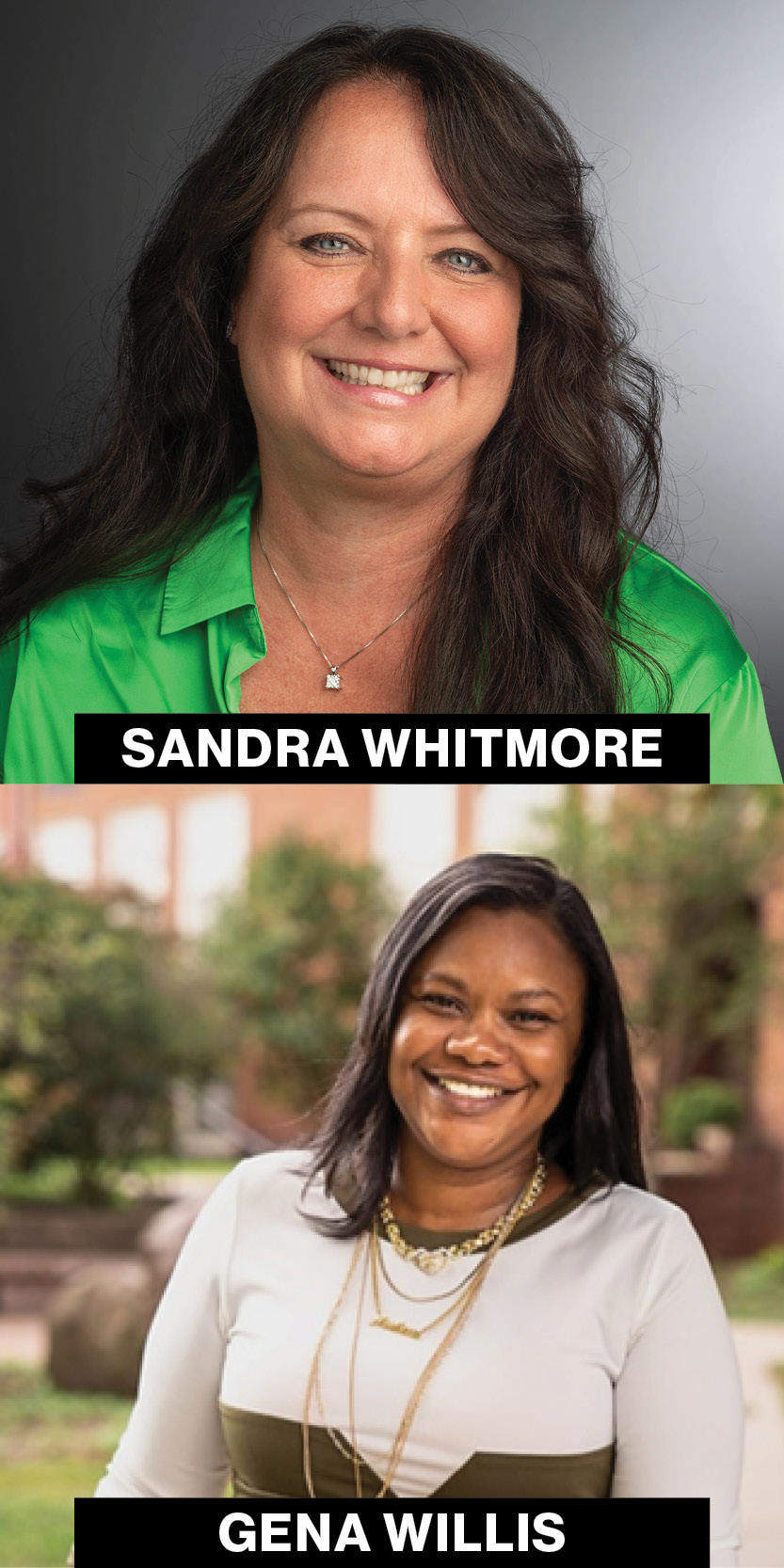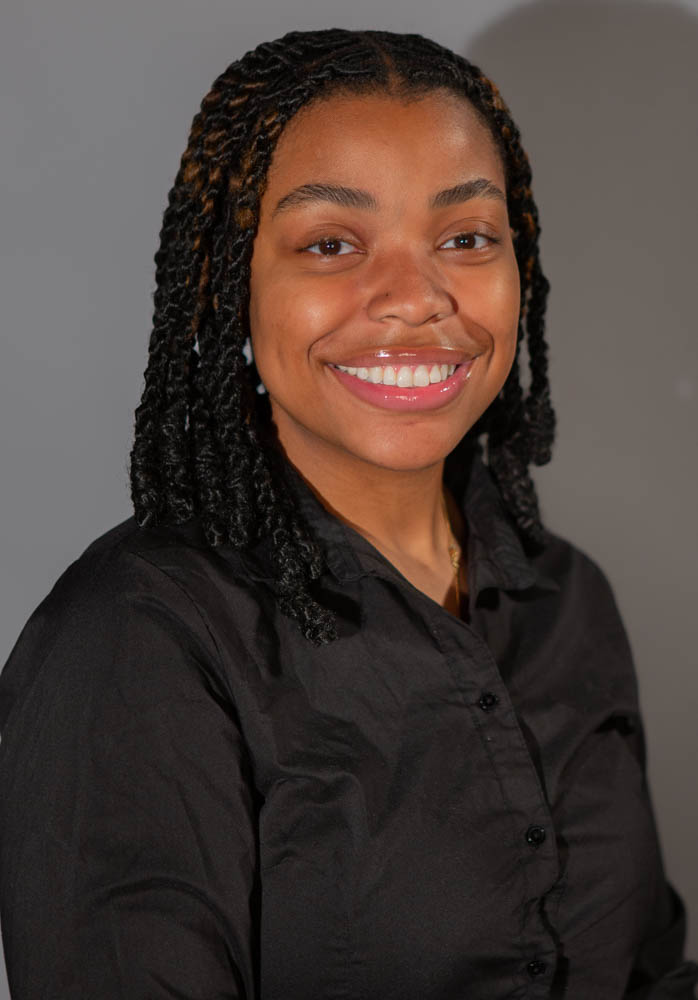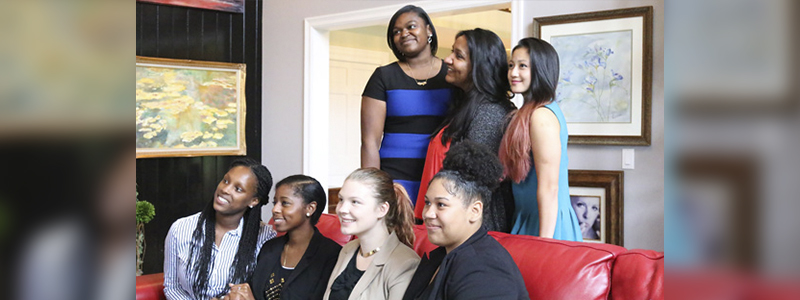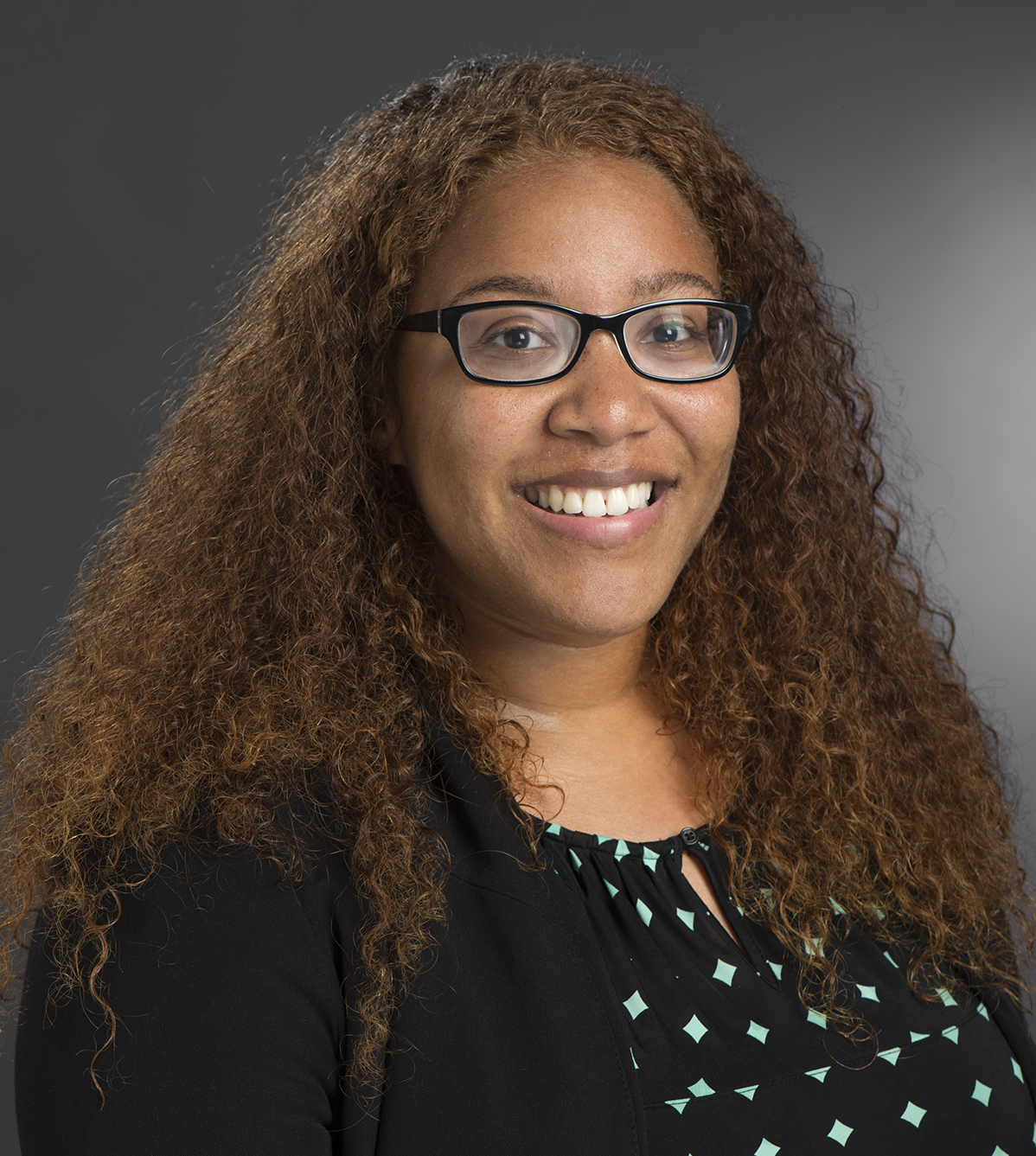Putting the Spotlight on WOCHA/MOCHA |
- RIT /
- Access, Engagement, and Success /
- Newsletters /
- February 2025 /
- Putting the Spotlight on WOCHA/MOCHA

Shayla Scott was part of RIT’s very first cohort of Women of Color, Honor, and Ambition (WOCHA). It was the 2015-2016 academic year. The Destler/Johnson Rochester City Scholar was a fourth-year accounting major in Saunders College of Business, and she was looking for a way to pair what she was learning academically with some personal development skills.
WOCHA is a one-year leadership development program with mentoring and networking opportunities. It has an emphasis on “undergraduate women-identified, trans-feminine and non-binary students between their second and fifth academic years of study.” Students must apply and then be selected for the program.
 Looking back, Scott says, “WOCHA made me feel supported and celebrated. It was a great opportunity to meet new people and enhance some soft skills before entering the workforce.” Today, she is using those skills as senior manager in the Assurance Department at MMB+CO, an accounting firm in Rochester. She also chairs the firm’s DEI Committee.
Looking back, Scott says, “WOCHA made me feel supported and celebrated. It was a great opportunity to meet new people and enhance some soft skills before entering the workforce.” Today, she is using those skills as senior manager in the Assurance Department at MMB+CO, an accounting firm in Rochester. She also chairs the firm’s DEI Committee.
WOCHA was not the first such program at RIT. It was actually organized a year after Men of Color, Honor and Ambition (MOCHA) was formed. That initiative was the brainchild of Kevin McDonald who at that time, was vice president and associate provost for diversity and inclusion.
He says, “In 2012, I sat on a student success steering committee and the committee was looking at local and national trend data that showed women outperforming men in the areas of academic performance, persistence, and graduation rates. RIT wanted to create a male success program for all male students at RIT, but I thought such a program had special implications for young men of color at PWIs (Predominantly White Institutions) that necessitated a program open for all young men, but that was created through the lens of young men of color. I researched what other institutions were doing nationwide, spoke at length with young men on campus at the time, like Kevin Lewis and Men of Color, Honor, and Ambition (MOCHA) was born and began with its first cohort in 2013.”
Today, McDonald is at the University of Virginia (UVA) as the vice president for Diversity, Equity, Inclusion and Community Partnerships. What started at RIT is now a model for similar programs where McDonald has worked. He introduced the concept at the University of Missouri System and an HBCU and now UVA and some middle and high schools in Charlottesville.
He says, “Honestly, it was everything that I wish I had in college. Mentorship with local and national leaders, and exposure to everything from financial literacy to academic success, to health and wellness, and much more. The goal: to provide supportive fillers academically, professionally, and personally.”
RIT’s WOCHA program was established, thanks in part, to the work of a determined group of women at RIT, including Tomicka Wagstaff, Stephanie Paredes, Candi Boston, Venessa Mitchell, Janette Frank, Natasha Daily, Sandy Whitmore and Devon Watters.
 “These powerful woman co-founders brought together their talents, skills and abilities to develop and implement WOCHA. Each of us contributed our own funds to start the initiative then we ran a successful Crowdfunding Campaign to raise almost $12,000 for the next class. When you look back to what we started in 2015 by women investing in other women, it is a proud moment for all of us to see this program institutionalized and led by a full-time staff person at RIT.” shared Sandra Whitmore, executive director for marketing and operations, Division of Diversity and Inclusion.
“These powerful woman co-founders brought together their talents, skills and abilities to develop and implement WOCHA. Each of us contributed our own funds to start the initiative then we ran a successful Crowdfunding Campaign to raise almost $12,000 for the next class. When you look back to what we started in 2015 by women investing in other women, it is a proud moment for all of us to see this program institutionalized and led by a full-time staff person at RIT.” shared Sandra Whitmore, executive director for marketing and operations, Division of Diversity and Inclusion.
Today both programs are under one umbrella, led by Gena Willis, assistant director for Affinity Programs and Leadership Development in the Multicultural Center for Academic Success (MCAS). She says students commit to meeting biweekly on a Saturday afternoon for an entire academic year. In addition, they take part in a three-day full-day training with Dale Carnegie. Willis sees first-hand how students benefit. “I see a huge difference in the students who participate in MOCHA and WOCHA by the end of the year. They are taking a deep dive into who they are as individuals and how that translates to leadership. Students are becoming more driven, determined, confident and intentional. Many of our graduates take on leadership roles on campus and in their respective fields.”
 One of those graduates is Guerline Guerrier. She is a fourth-year biomedical sciences major and was a member of WOCHA Cohort 7 last year. She is a past president of the Black Awareness Coordinating Committee and still leans on the leadership skills she learned. “In addition to my studies, I am now the president of the ALANA Collegiate Association, where I ensure African, Latin, Asian, and Native American students are heard and supported. I also conduct biochemistry research under Dr. Lea Michel and serve as a Resident Advisor for about 20 students.”
One of those graduates is Guerline Guerrier. She is a fourth-year biomedical sciences major and was a member of WOCHA Cohort 7 last year. She is a past president of the Black Awareness Coordinating Committee and still leans on the leadership skills she learned. “In addition to my studies, I am now the president of the ALANA Collegiate Association, where I ensure African, Latin, Asian, and Native American students are heard and supported. I also conduct biochemistry research under Dr. Lea Michel and serve as a Resident Advisor for about 20 students.”
Another alum is MOCHA’s Jaharie Waterman-Jordan, a fourth-year robotics and manufacturing engineering technology major. He says the bonding experiences last year were important. “The biggest takeaway for me was the sense of community. I left the program with real connections to people I can rely on, whether it is for advice, support, or just talking about life.”
Many MOCHA/WOCHA “alums” serve as mentors to others. That’s what convinced Serenity Brown, a second-year electrical engineering major to fill out an application to join this year’s WOCHA Cohort 8. “I was fortunate to have an amazing mentor, Jada Jennings, from WOCHA Cohort 7. Jada felt that the WOCHA program could mold me into becoming the engaged and well-connected student leader I aspired to be on campus.”

However, the majority of mentors are seasoned professionals from RIT and the Rochester community who volunteer to work with students one-on-one.
Tobi Fadipa, MOCHA Cohort 11 and a fourth-year psychology major says, “My mentor is Dr. O. Nicholas Robertson and so far, he has been a very valuable resource for me whether that be guiding me towards what jobs I can apply for and what graduate schools I can look at or having a casual conversation about how to survive at a PWI, especially in the field of Liberal Arts.”

Shayla Scott remembers how important that strong network of support was to her as a student. “One of the things that I enjoyed the most was meeting the cohort of ladies. It was nice to have the group to talk to about life and the things we experienced on campus and with co-ops. Stephanie Paredes’s office became a safe place for us at a PWI which is not an easy feat.” She says their sisterhood is still strong today.
 With such a firm foundation, the future of RIT’s MOCHA/WOCHA program is bright according to Marykatherine Woodson, the Director of MCAS.
With such a firm foundation, the future of RIT’s MOCHA/WOCHA program is bright according to Marykatherine Woodson, the Director of MCAS.
“The world is continuing to see representation of People of Color in places they have never been- places where many didn’t want them. Former President Barak Obama, Former Vice President Kamala Harris, The Honorable Ketanji Brown Jackson, Supreme Court Justice. They are all great examples of “firsts” who have pioneered their field and made it clear they were not going to be last. Programs like MOCHA and WOCHA are the pipelines that we build straight to the top. We provide the space for our students to express their fears and concerns and then we provide the tools for them to know they belong at the table. We provide the tools to lead the table. And if necessary, to build the table. My dearest hope is that we can not only expand the space we have for the program but also be able to provide additional experiences along the way for the students such as an annual Alternative Spring Break trip, attending the new MOCHA/WOCHA conference annually, and starting a post graduate school scholarship. The future for MOCHA/WOCHA is bright.”


